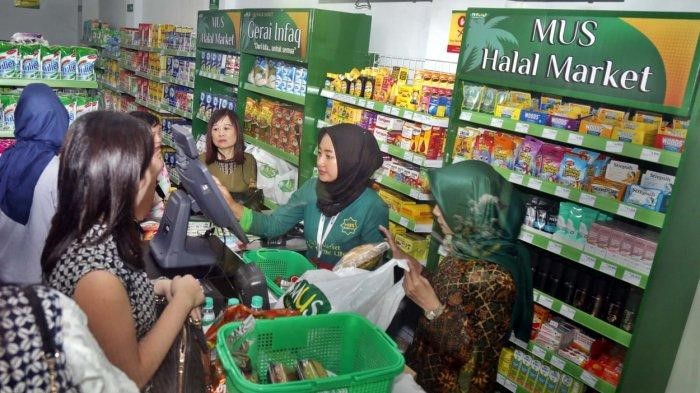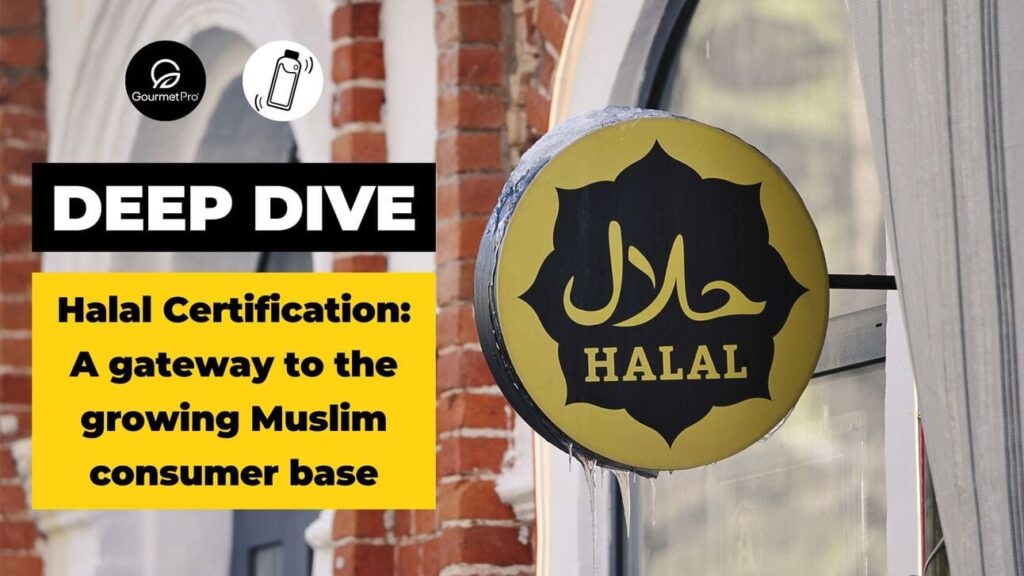Halal certification is an integral part of conducting business in Indonesia, where a significant majority of the population adheres to Islamic principles. As one of the world’s largest Muslim-majority countries, Indonesia presents an unparalleled opportunity for businesses to thrive in the burgeoning halal market Indonesia. The importance of halal certification cannot be overstated, as it fosters consumer trust halal certification, enhances brand reputation, and opens doors to local and global markets. This article delves into why halal certification is essential for businesses in Indonesia, backed by market insights, statistics, and practical benefits for companies.
The Growing Halal Market in Indonesia
Indonesia stands as one of the most vibrant markets for halal products globally, driven by its status as the world’s largest Muslim-majority country. The halal market Indonesia is experiencing unprecedented growth, underscoring the importance of halal certification as a cornerstone for businesses aiming to capture this expanding sector. According to Dinar Standard, the consumption of halal products in Indonesia is projected to soar to USD 282 billion by 2025, fueled by increasing consumer awareness and demand for halal-compliant goods across a wide range of industries. This remarkable growth spans food, beverages, pharmaceuticals, cosmetics, and services, reflecting a shift in consumer preferences toward halal-certified products. For businesses, entering the halal market Indonesia without the proper certification means missing out on a vast, loyal customer base that prioritizes adherence to Islamic principles. This certification is not merely a religious formality but an essential business strategy for companies seeking long-term success in this lucrative market.

Statistics reinforce the importance of halal certification as a key driver of economic growth in Indonesia. In 2022, Indonesia’s halal-certified product exports reached an impressive USD 61.59 billion. This demonstrates the country’s potential as a global halal hub, with halal-certified businesses playing a pivotal role in its economic landscape. Moreover, the number of halal certifications issued surged by 41% in 2024, highlighting the growing commitment of businesses to align with consumer expectations in the halal sector. Domestically, halal certification significantly influences purchasing behavior. Surveys indicate that over 87% of Indonesian consumers prioritize halal certification when buying food and beverage products. This consumer trend underscores the consumer trust halal certification fosters, making it an indispensable tool for businesses aiming to build credibility and capture market share.
Competitive Advantages for Businesses in the Halal Market
The importance of halal certification for businesses in Indonesia goes far beyond mere regulatory compliance. It provides numerous strategic benefits that significantly contribute to a company’s growth, profitability, and long-term success. In the thriving halal market Indonesia, certification serves as a powerful differentiator that helps businesses stand out in an increasingly competitive landscape.
1. Enhancing Brand Reputation Through Certification
One of the most immediate advantages of halal certification is its impact on brand reputation. A halal certification stamp on products is a visible assurance of quality, ethical responsibility, and adherence to Islamic principles. For businesses in Indonesia, where the majority of the population identifies as Muslim, this certification is often considered a prerequisite for earning consumer trust halal certification. Certified brands gain credibility among consumers, signaling that the products meet the stringent standards of halal compliance. This trust not only boosts customer confidence but also fosters brand loyalty, encouraging repeat purchases. Companies that prioritize halal certification demonstrate a commitment to transparency and consumer well-being, further enhancing their standing in the market.

2. Expanding Market Reach Domestically and Internationally
Halal certification opens the door to the vast halal market Indonesia, allowing businesses to tap into a large and growing consumer base. Domestically, the certification ensures access to millions of Indonesian consumers who prioritize halal-compliant products daily. For businesses looking to expand their reach, halal certification is essential for entering Muslim-majority countries and other regions with rising demand for halal products, including Europe, North America, and parts of Asia. In addition to increasing market access, halal certification enables businesses to participate in government initiatives and programs designed to promote Indonesian halal products globally. This enhances export opportunities and strengthens Indonesia’s position as a leading player in the global halal economy.
3. Catering to the Global Halal Demand
The global halal economy is projected to exceed USD 2.3 trillion in the coming years, highlighting the immense potential for businesses that invest in halal certification. As one of the largest producers of halal goods, Indonesia plays a critical role in meeting the needs of Muslim consumers worldwide. For companies operating in Indonesia, obtaining halal certification is a strategic move that positions them as key players in this lucrative sector. By aligning with the values and preferences of Muslim consumers, businesses can attract a broader audience while contributing to the growth of the global halal market. This creates opportunities to establish partnerships, expand distribution channels, and build a competitive edge in an industry with rapidly growing demand.
4. Building Long-Term Consumer Relationships
The consumer trust halal certification fosters is a cornerstone of building enduring customer relationships. Halal certification reassures consumers that their products align with their religious beliefs and ethical values, creating a strong emotional connection between the brand and its audience. This trust extends beyond a single transaction, as consumers are likelier to remain loyal to brands that uphold their principles. By consistently delivering halal-certified products, businesses can strengthen their customer base, drive repeat purchases, and secure a steady revenue stream. Investing in halal certification, therefore, is not just about compliance but about fostering meaningful, long-term relationships with a loyal consumer base.
Overcoming Barriers to Entry with Halal Certification
Navigating the halal market Indonesia can be challenging for businesses, especially those new to this growing sector. Meeting stringent regulatory requirements and satisfying consumer expectations often emerge as significant hurdles. However, the importance of halal certification lies in its ability to address these challenges, offering businesses a structured and standardized framework to ensure compliance and gain consumer trust.
1. A Standardized Path to Compliance
Halal certification provides businesses a clear roadmap for aligning their operations with Islamic principles. The certification process thoroughly evaluates various aspects, such as raw materials, production facilities, and supply chain practices. This meticulous assessment ensures that products meet halal standards, fostering consumer confidence. This certification is essential to establish legitimacy for many businesses, especially those operating in sectors like food, beverages, cosmetics, and pharmaceuticals. Without it, companies may struggle to gain a foothold in the halal market Indonesia, where consumers demand transparency and strict adherence to Islamic guidelines.
2. Addressing Consumer Expectations
Consumer expectations in Indonesia’s predominantly Muslim market are high, particularly when it comes to halal compliance. Products without proper certification often face scepticism, limiting their market potential. By obtaining halal certification, businesses can bridge the gap between regulatory compliance and consumer expectations. This opens doors to a larger consumer base and fosters consumer trust in halal certification, which is vital for long-term success. Certified products symbolize quality, ethical responsibility, and adherence to religious principles. This assurance resonates deeply with consumers, who prioritize products that align with their values. Consequently, halal certification becomes critical in earning consumer loyalty and differentiating brands in a competitive marketplace.

3. Empowering MSMEs to Succeed
The halal market Indonesia is not just a space for large corporations; it also offers immense opportunities for MSMEs (Micro, Small, and Medium Enterprises). However, these smaller businesses often face unique challenges, such as limited resources and a lack of awareness about halal certification requirements. Halal certification levels the playing field by enabling MSMEs to meet the same standards as larger companies. By obtaining certification, MSMEs can access new markets, attract a broader customer base, and compete effectively with established players. This is particularly important in Indonesia, where MSMEs contribute significantly to the economy and have the potential to drive growth in the halal sector.
Best Practices for Businesses Seeking Halal Certification
Achieving halal certification is a vital step for businesses aiming to succeed in the competitive and expanding halal market Indonesia. To fully harness the benefits of this certification, companies must go beyond merely meeting requirements and actively incorporate best practices into their operations. By doing so, they can enhance their credibility, build consumer trust halal certification, and secure a strong foothold in the market.
1. Engage with Certifying Bodies for Compliance
One of the most critical steps in obtaining halal certification is working closely with recognized certifying institutions like the Indonesian Ulema Council (MUI). These bodies ensure that products comply with the rigorous standards required by Islamic law. Engaging early and consistently with these organizations simplifies the certification process and demonstrates the business’s commitment to aligning with religious principles and regulatory expectations.
Collaborating with MUI or other authorized agencies also ensures that companies stay informed about updates to halal certification standards, helping them maintain compliance over time. This proactive approach reinforces the importance of halal certification as a long-term strategy for success.
2. Educate Teams on Halal Requirements
A well-informed team is essential for maintaining halal compliance. Businesses should invest in training programs that educate employees about the significance of halal certification, the specific requirements for their roles, and how their actions impact the certification process. From procurement to production and marketing, every team member plays a role in ensuring adherence to halal standards. By fostering an organization-wide understanding of halal principles, companies can minimize errors and streamline operations. This not only supports the certification process but also strengthens consumer trust halal certification by showcasing the business’s dedication to quality and ethical practices.
3. Implement Robust Halal Assurance Systems (HAS)
A Halal Assurance System (HAS) is a cornerstone for maintaining compliance throughout the production and supply chain. This system ensures that halal standards are upheld at every stage, from sourcing raw materials to delivering the final product to consumers. By implementing a robust HAS, businesses can monitor their processes effectively, identify potential risks, and address issues promptly. HAS also provides a framework for continuous improvement, enabling companies to adapt to changing market demands and regulatory updates. For businesses operating in the halal market Indonesia, a strong HAS serves as a critical tool for sustaining compliance and building a reputation for reliability.
4. Promote Halal Certification to Build Trust
Once a business obtains halal certification, it is essential to communicate this achievement to consumers. Highlighting the halal-certified status of products in marketing materials, packaging, and advertising campaigns can significantly boost consumer trust halal certification. This trust translates into increased customer loyalty, better brand recognition, and a stronger competitive position in the marketplace. Promoting halal certification is particularly important in Indonesia, where the predominantly Muslim population places a high value on compliance with Islamic principles. Businesses should use their halal status as a unique selling point to differentiate themselves from competitors and attract a broader audience.
Conclusion
The importance of halal certification in Indonesia cannot be overstated. It is more than a regulatory requirement; it is a strategic investment that drives consumer trust, enhances brand reputation, and unlocks opportunities in the thriving halal market Indonesia. By obtaining halal certification, businesses can align with the values of their target audience, gain a competitive edge, and achieve long-term growth in one of the world’s most dynamic markets. As consumer demand for halal-certified products continues to rise, businesses that prioritize certification are well-positioned to lead the way in Indonesia’s booming halal economy.
What is halal certification, and why is it important for businesses in Indonesia?
Halal certification ensures that products and services comply with Islamic principles, making them permissible for consumption by Muslims. In Indonesia, where the majority population is Muslim, this certification is crucial for building consumer trust, enhancing brand reputation, and accessing the rapidly growing halal market.
How does halal certification benefit businesses in Indonesia?
Halal certification offers multiple benefits, including increased consumer confidence, expanded market access locally and internationally, improved brand credibility, and opportunities to participate in government-supported halal export initiatives.
What industries in Indonesia benefit the most from halal certification?
Industries such as food and beverages, cosmetics, pharmaceuticals, and services see the most significant benefits. These sectors align closely with consumer preferences for halal-compliant products, making certification a critical factor for success.
How can businesses in Indonesia obtain halal certification?
Businesses can obtain halal certification by engaging with recognized certifying bodies like the Indonesian Ulema Council (MUI), implementing a Halal Assurance System (HAS), and ensuring compliance in production, supply chain, and marketing processes. Training staff on halal standards is also essential for maintaining certification.




